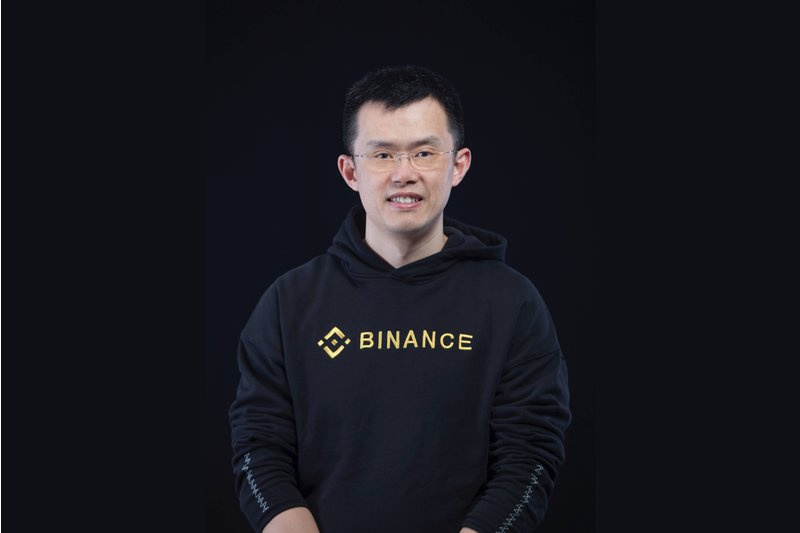《財富》專訪趙長鵬:我更喜歡去馬耳他開展業(yè)務(wù)

|
趙長鵬是一位平易近人的加密貨幣億萬富翁。他擔(dān)任首席執(zhí)行官的幣安公司(Binance)去年橫空出世,一躍成為世界上最大的加密貨幣交易所,但他本人從不自吹自擂或目空一切。 相反,人稱“CZ”的趙長鵬友善而安靜,他將精力都放在打造區(qū)塊鏈帝國上,后者有可能重塑世界上的諸多金融系統(tǒng)。在接受《財富》雜志采訪時,趙長鵬就幣安和加密貨幣的未來闡述了他的幾大思路。 趙長鵬曾在加拿大留學(xué)。他并不在意別人把“CZ”叫成“C-Zee”,還是按照加拿大人的習(xí)慣叫成“C-Zed”——大多數(shù)對區(qū)塊鏈的預(yù)測都錯了。不過,許多人或許很想聽聽他對未來的看法。 我總結(jié)了CZ在采訪中談到的三個問題,并做了一些整理。 未來是去中心化的,但需要一段時間才能到來 上周幣安宣布了它的第一筆收購,對象是TrustWallet,一個兼具去中心化app(dApp)瀏覽器功能的電子錢包。此舉背后的動機是幣安認(rèn)為會有更多人開始使用去中心化服務(wù),此類服務(wù)能提供更大的隱私空間,因為它們不需要依賴任何實體控制的服務(wù)器。 雖然近兩年dApps出現(xiàn)了爆發(fā)性增長,其中最著名的當(dāng)屬電子寵物網(wǎng)站CryptoKitties,但實際情況是這些dApp用戶寥寥,這在一定程度上是因為它們的用戶界面非常不好用。對此CZ表示認(rèn)同。 他說:“dApp還處在非常早的階段,大多數(shù)還都只是對概念的驗證或者簡單的游戲。”但CZ認(rèn)為這種情況可能很快就會改變。 CZ預(yù)計,到2020年我們就會看到基于區(qū)塊鏈的聊天、游戲和社交網(wǎng)絡(luò)以及評級體系得到更廣泛的應(yīng)用,而接下來的一個階段將是電子商務(wù)。 與此同時,幣安正在全力打造一個去中心化金融系統(tǒng)。這不是什么新思路,比特幣最初的愿景就是這樣,但幣安一直在通過重大行動來對其進(jìn)行擴展,比如和馬耳他政府共同建立全球性去中心化社區(qū)銀行。CZ還說幣安正在建立自己的區(qū)塊鏈,目的是服務(wù)于去中心化加密貨幣交易所。 熱門區(qū)塊鏈面臨威脅 說到提供dApp和訂立標(biāo)準(zhǔn),以太坊區(qū)塊鏈?zhǔn)悄壳暗膱?zhí)牛耳者。但資金實力雄厚的競爭對手,特別是Tezos、Eos和Dfinity,都相信可以通過推出更快、更高效的協(xié)議將以太坊拉下馬來。那么誰會勝出呢? 讓我意外的是,CZ認(rèn)為目前的這些爭奪者都無法取得長期成功,因為它們的速度都太慢了。雖然長期以來此類批評針對的一直都是以太坊,但CZ說任何為通用智能合約設(shè)計的區(qū)塊鏈都不會很快(現(xiàn)在這些競爭者做的就是這些)。相反,他認(rèn)為現(xiàn)有區(qū)塊鏈將把這個領(lǐng)域讓給更專業(yè)化的區(qū)塊鏈。 CZ指出,Komodo和Tendermint等新一些的工具讓針對特定目的創(chuàng)建區(qū)塊鏈成為可能,這就意味著今后會出現(xiàn)許許多多量身定制的分布式賬本。他的這番話表明區(qū)塊鏈的發(fā)展路徑將類似于芯片,主導(dǎo)計算領(lǐng)域的是那些定制的專用集成電路芯片,而非通用集成電路——當(dāng)然這只是我的解讀。 加密貨幣市場的規(guī)模足夠大家分享 在采訪中,CZ一直很有禮貌,無論是有關(guān)區(qū)塊鏈的宏大思路,還是溫哥華地區(qū)列治文市的餐館這樣的小話題,他都樂于談?wù)摗K裕瑢τ诤蛶虐餐瑸樽畛錾用茇泿殴镜腃oinbase,他只有贊譽之辭可能就不會讓人覺得驚訝了。 幣安披露的去年利潤規(guī)模為5-10億美元,CZ說他們無意在美國等地挑戰(zhàn)Coinbase。 “在發(fā)達(dá)市場,可賺的錢較多,但監(jiān)管也較嚴(yán),而且充滿了競爭。我們不打算跟Coinbase和[文克勒沃斯兄弟的]Gemini進(jìn)行競爭。那里的策略需要很多律師和游說活動。” CZ還說,他更喜歡在馬耳他這樣的地方開展業(yè)務(wù),因為他可以直接跟政府要員共同推廣去中心化金融系統(tǒng)理念。 因此,CZ認(rèn)為他們不會像Uber和Lyft那樣為了市場份額爭個你死我活。相反,他說Coinbase很欣賞幣安在馬耳他打下的基礎(chǔ),幣安則對Coinbase幫助美國律師理解加密貨幣的做法表示感謝。 他表示:“我們和Coinbase的關(guān)系非常好。”(財富中文網(wǎng)) 譯者:Charlie 審校:夏林 ? |
Changpeng Zhao is down to earth for a crypto billionaire. The CEO of Binance, which emerged out of nowhere last year to become the world’s biggest cryptocurrency exchange, isn’t given to boasting or swaggering pronouncements. Instead, the man people call “CZ” is friendly and quietly focused on building a blockchain empire that could remake swaths of the world’s financial system. In an interview with Fortune, he shared some very big ideas about the future of Binance and cryptocurrency. According to CZ—who doesn’t mind if you pronounce it “C-Zee” or “C-Zed,” as they do in Canada where he studied—most blockchain predictions end up being wrong. Nonetheless, many people may be keenly interested to hear what he thinks will happen next. Here are three insights I gleaned from CZ during the course of our interview. What follows is a loose paraphrasing of his comments. The Future is Decentralized but Will Take a While to Arrive Binance announced its first acquisition?last week in the form of TrustWallet, a wallet app that also serves as a browser for decentralized applications (dApps). The move is a bet by Binance that more people will start using decentralized services, which provide more privacy since they don’t rely on servers controlled by any single organization. While there’s been an explosion of dApps in the last two years—the most famous example is the collectibles site Crypto-Kitties—the reality is few are using them, in part because the user interfaces are so unwieldy. CZ concedes the point. “It’s still the very early stage in dApps. Most are just proof of concept or simple games,” he says, but adds this will likely to change before long. By 2020, CZ says we’ll see broader use of blockchain-based messaging, games, social networks and rating systems. The next stage after that will be e-commerce, he expects. In the meantime, Binance is going full-speed with building a decentralized financial system. This is not a new idea—it was the original vision of Bitcoin—but Binance has been taking radical steps to expand on it. This includes working with the country of Malta for a global decentralized community bank. CZ also says Binance is building its own blockchain to facilitate a decentralized cryptocurrency exchange. Popular Blockchains Are Under Threat Right now, the Ethereum blockchain rules the roost when it comes to hosting dApps and defining standards. But deep-pocketed competitors—notably Tezos, Eos, and Dfinity—believe they can dethrone Ethereum by offering faster and more efficient protocols. So who will win? To my surprise, CZ thinks none of the current contenders are poised for long-term success because they are too slow. While this criticism has long been leveled at Ethereum, CZ says any blockchain designed for general smart contracts (as the current competitors are) won’t be swift enough. Instead, he thinks the existing blockchains will cede the field to more specialized ones. CZ cited newer tools like Komodo and Tendermint that make it possible to write blockchains for specific purposes, suggesting the future will consist of numerous bespoke ledgers. His comment—and this is just my interpretation—implies that blockchains will evolve in the way of chips, where customized ASIC (“application specific integrated circuit”) chips have come to dominate computing over general purpose ones. The Cryptocurrency Market is Big Enough to Share In our interview, CZ was unfailingly polite, and equally happy to talk about big blockchain ideas or make small talk about the restaurants in the Richmond area of Vancouver. So perhaps it’s unsurprising he only had good things to say about Coinbase, which along with Binance is the most prominent cryptocurrency company. CZ says Binance, which claimed a profit of between $500 million and $1 billion last year, doesn’t want to challenge Coinbase in places like the United States. “In developed markets, there’s more money to be made but more regulation and it’s saturated with competition,” he said. “We don’t want to compete with Coinbase and [Winkelvoss-owned] Gemini. The strategy there requires lots of lawyers and lobbying.” He added that he prefers operating in places like Malta where he can work directly with a head-of-state to promote the ideals of a decentralized financial system. As such, he doesn’t see an Uber-Lyft style fight-to-the-death for market share. Instead CZ says Coinbase appreciates the groundwork Binance is laying in Malta, while Binance is grateful for Coinbase’s work helping U.S. lawmakers to understand crypto. “We have a very good relationship with Coinbase,” he said. |
-
熱讀文章
-
熱門視頻











